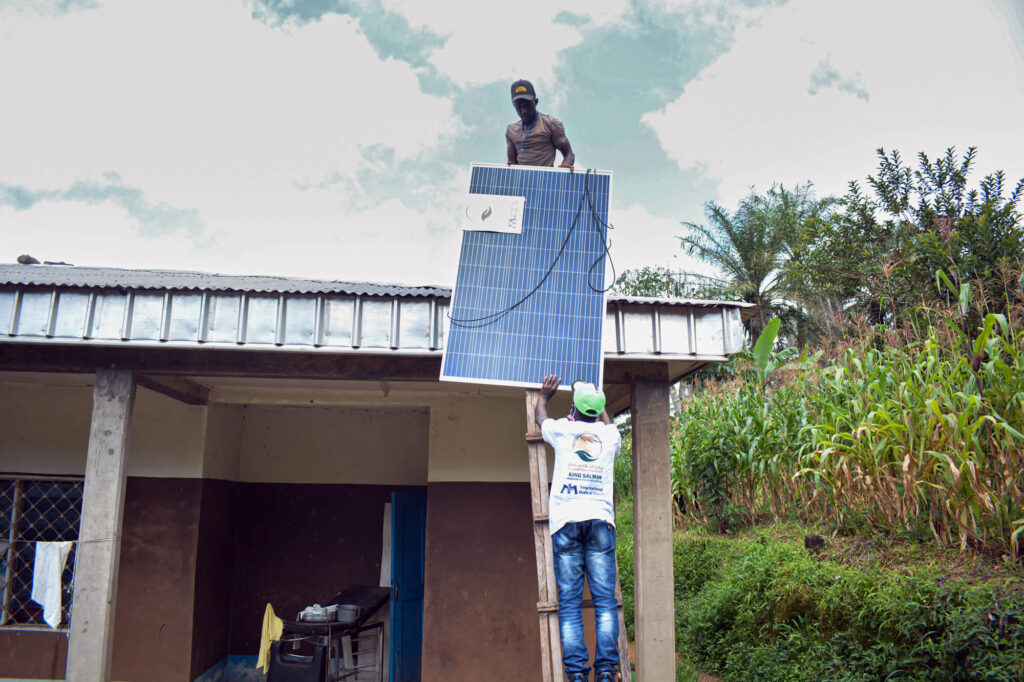Working with the Cameroon Ministry of Public Health, we are reducing COVID-19 illness and preventing deaths by helping with vaccinations and putting hardware where it’s needed most.
We recently donated a solar refrigerator—which will be used for the storage of vaccines and cold packs—to the remote health district of Mbengwi in Northwest Cameroon, where we have provided primary health and nutrition services since 2021. The process was not easy in an area that has been affected for six years by civil unrest from armed groups.
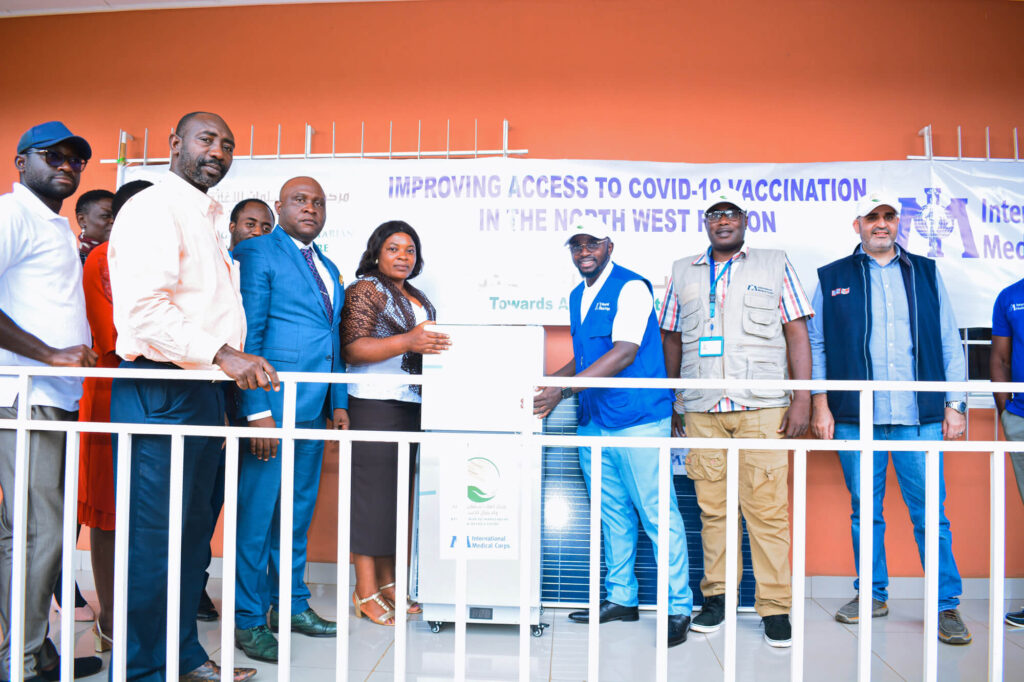
This unrest has made the region nearly inaccessible, with no vendors willing to transfer and install the fridge in such a remote area, due to security concerns and bad roads. Instead, the vendor delivered the fridge to our office in Bamenda—the furthest they would travel into Northwest Cameroon. We applied in advance for authorization to transfer the fridge to Njah-Etu village, where military checkpoints would not allow cars to pass without such authorization. Our team—including an access officer who chooses the safest route through the region—then hauled the fridge, solar panel and batteries in a mini pickup and installed them at the pharmacy in the village’s health center.
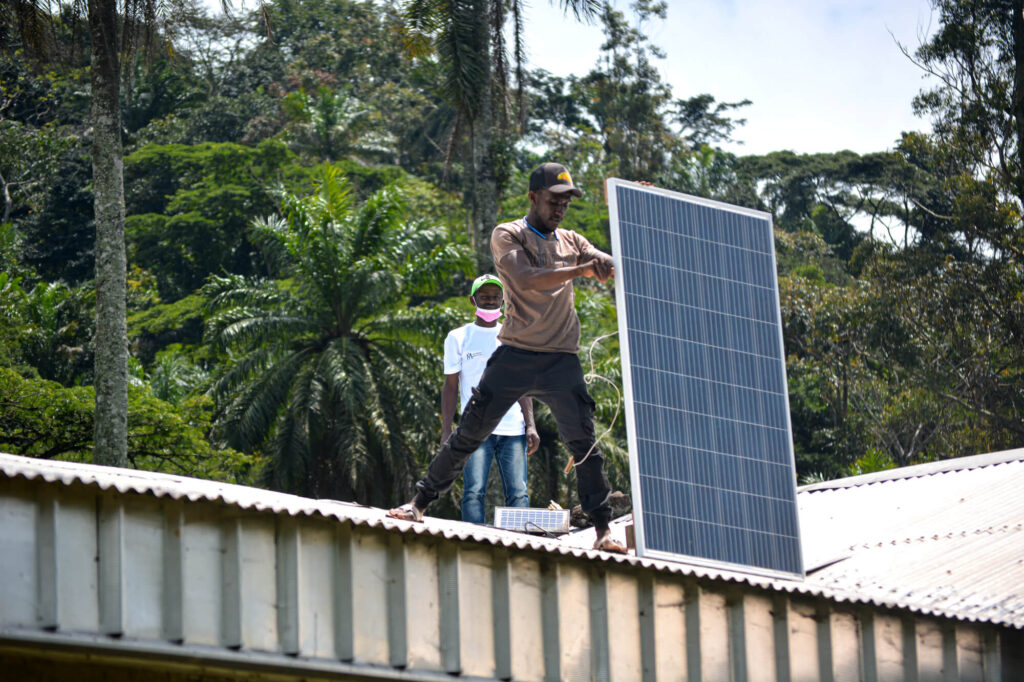
The fridge is vital for the population of Njah-Etu, where the health center has suffered for years from lack of electricity. Each week, an International Medical Corps nurse travels from Njah-Etu to the district hospital 23 km (14 mi) away and brings back vaccines in an ice box to vaccinate people who have appointments that day. Because of the bad roads, her trip can take up to two hours each way. But now the health center can store vaccines in the fridge—and International Medical Corps will be able to keep a stock of cold-chain medications on hand.
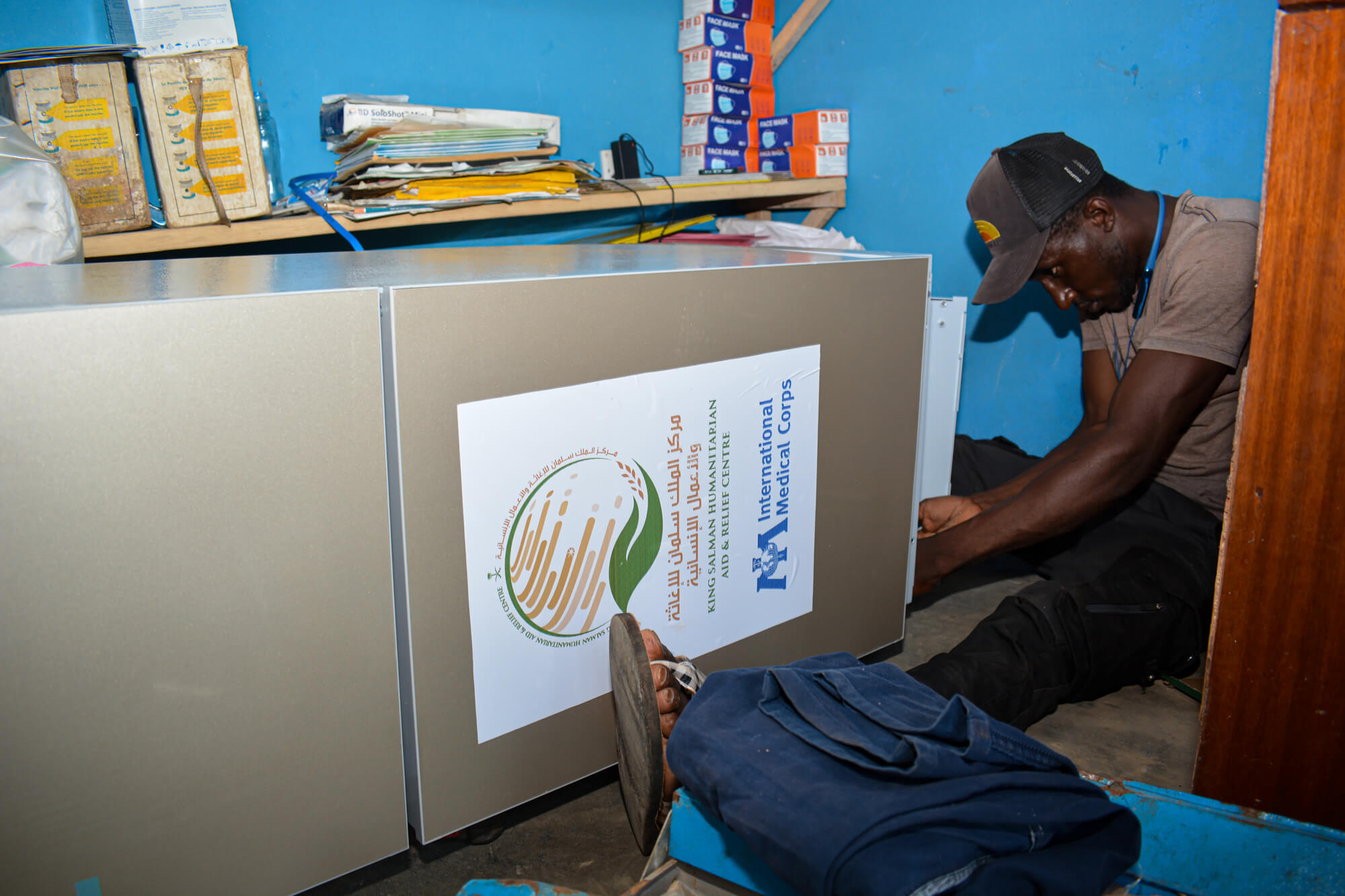
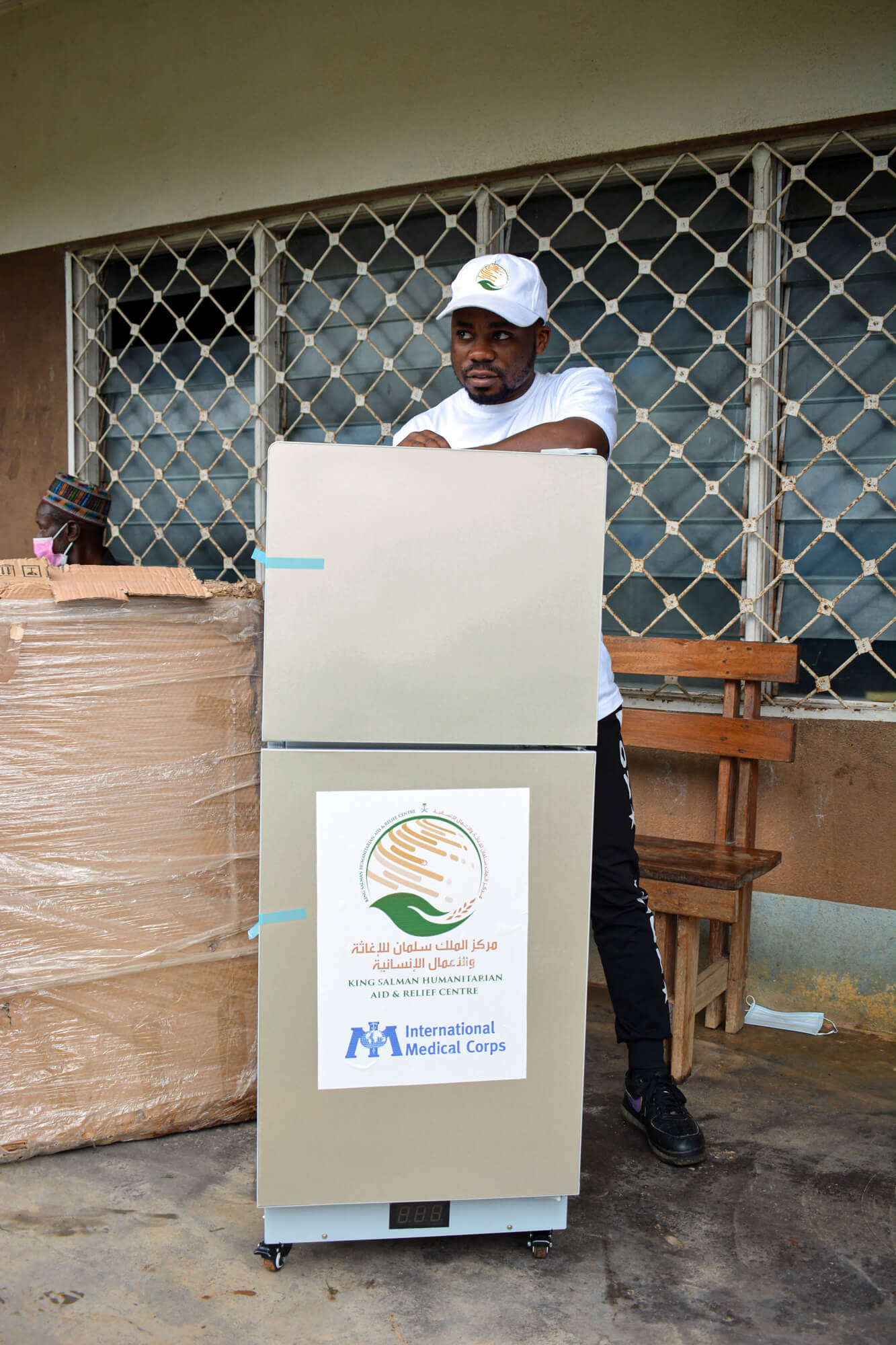
In addition to this project, we are reducing disease and saving lives by continuing to procure and donate other materials—including cold boxes and vaccine carriers—to many other health facilities in Cameroon.
